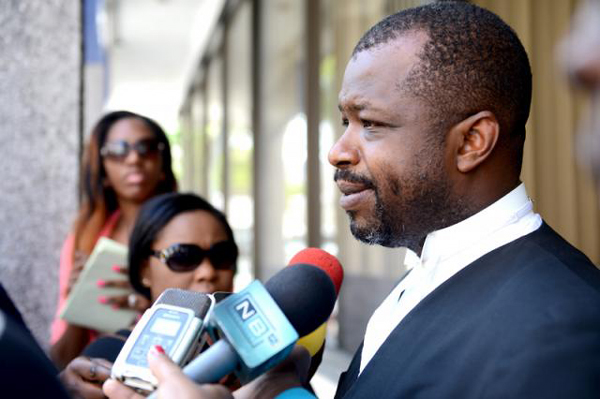
By Jerry Roker
for Bahamas Press
No useful purpose can be served here by my listing all the projects PM Christie enumerated as being in progress and likely to be completed at varying times over the next 3 years. Based on his projections, the tourism industry could reap benefits that extend well beyond 2017. There is also an anticipated boom in the construction arena particularly after the government launches its ambitious housing project. The jobs created from activities in these two major sectors of our economy can’t come quick enough.
The FNM and other opposition forces have expressed their doubts about the PM’s projections. For them to do so in the face of the prevailing facts is significant, if for no other reason than, prior to making any determination on any growth projections for our economy, these rating agencies obtain the views of the Opposition.
If they had the superior interest of their country at heart, they could have expressed hope that our forecasts are achieved. But they choose doubt and gloom.
Despite all the noise being made by those opposed to the PM Christie’s Government, in particular the FNM, in response to Standard & Poor’s recent downgrade, I believe The Bahamas is better positioned than it has been in a decade to re-establish itself as a high-end luxury destination.
But any such long-lasting recovery is obviously predicated on The Bahamas retaining the trust of foreign investors. There’s no bigger coward in the world than big money and any hint of instability or heightened political or social tensions can be sufficient to send it scurrying for shelter elsewhere.
By and large, The Bahamas is obviously considered a stable and safe choice for investors.
But recently the continuing fractiousness of Bahamian politics has raised eyebrows — and more than a few concerns — among those investing both their money and their confidence in our country.
The Opposition has been on a permanent election footing in the past few months. Its leadership has launched what amounts to a campaign of ceaseless agitation against the Government and its initiatives, one marked by increasingly immoderate language, flamboyant theatrics and sometimes questionable gamesmanship.
As a consequence, the Island’s political temperature is being kept deliberately overheated; even minor and relatively non-contentious matters on the public agenda are now being routinely subjected to entirely overwrought Opposition scrutiny.
The Speaker of the House of Assembly has had to adjourn some recent sessions of the legislature as “disorderly assemblies” so chaotic and so unnecessarily rancorous have debates become.
Even battle-hardened parliamentary observers have commented that it’s next to impossible to exaggerate the intensity of the passions now on regular display in our Lower House.
Clearly the time has come to lower the political temperature a few degrees.
It’s hard to fault politicians for being ambitious or an Opposition for zeroing in on a Government’s perceived weaknesses. Our Westminster parliamentary system is, after all, largely predicated on the mutually antagonistic relationship between the rival parties. Nevertheless, parliamentarians are always obliged to put the public interest ahead of narrow party interests. No matter how intent the Opposition is on securing victory at the next election, its leaders must accept that not all tactics which they hope will advance this overriding strategic objective are justified.
It’s certainly not unknown here or elsewhere for politicians to preach their own party political dogma with such unswerving faith that they become blind to the grim realities of objective facts.
We still haven’t recovered from the 2008 recession and it was under the FNM’s watch between 2007 and 2012 that our recovery was significantly delayed by drunken-sailor spending that necessitated massive borrowing, as they sought to spend us out of the recession.
The Opposition needs to begin factoring these realities into its political calculations and then proceed accordingly.
Moderating the tone and intensity of its criticisms doesn’t mean abandoning either its constitutional watchdog role or its goal of retaking the government benches at the next election.
Frankly, a more judicious approach to the issues of the day on the Opposition’s part would not only shore up confidence in The Bahamas among foreign investors, it may also be the best way for it to regain the trust of Bahamian voters who abandoned it in May 2012.








3 out of 5 add up the odds with this gov. saying things up a swinging,sigh…
Comments are closed.